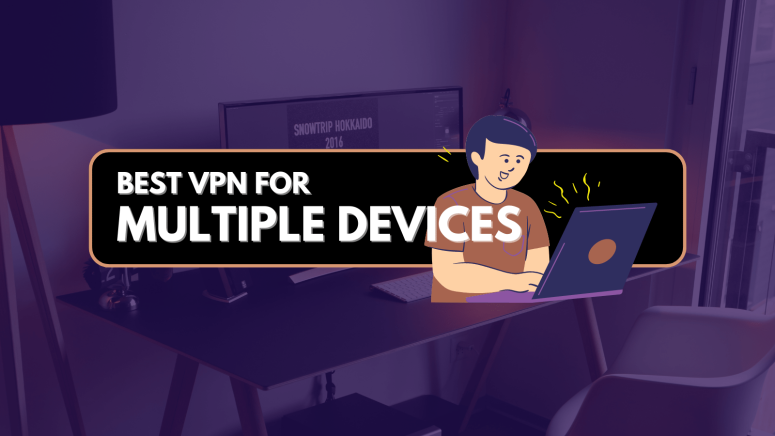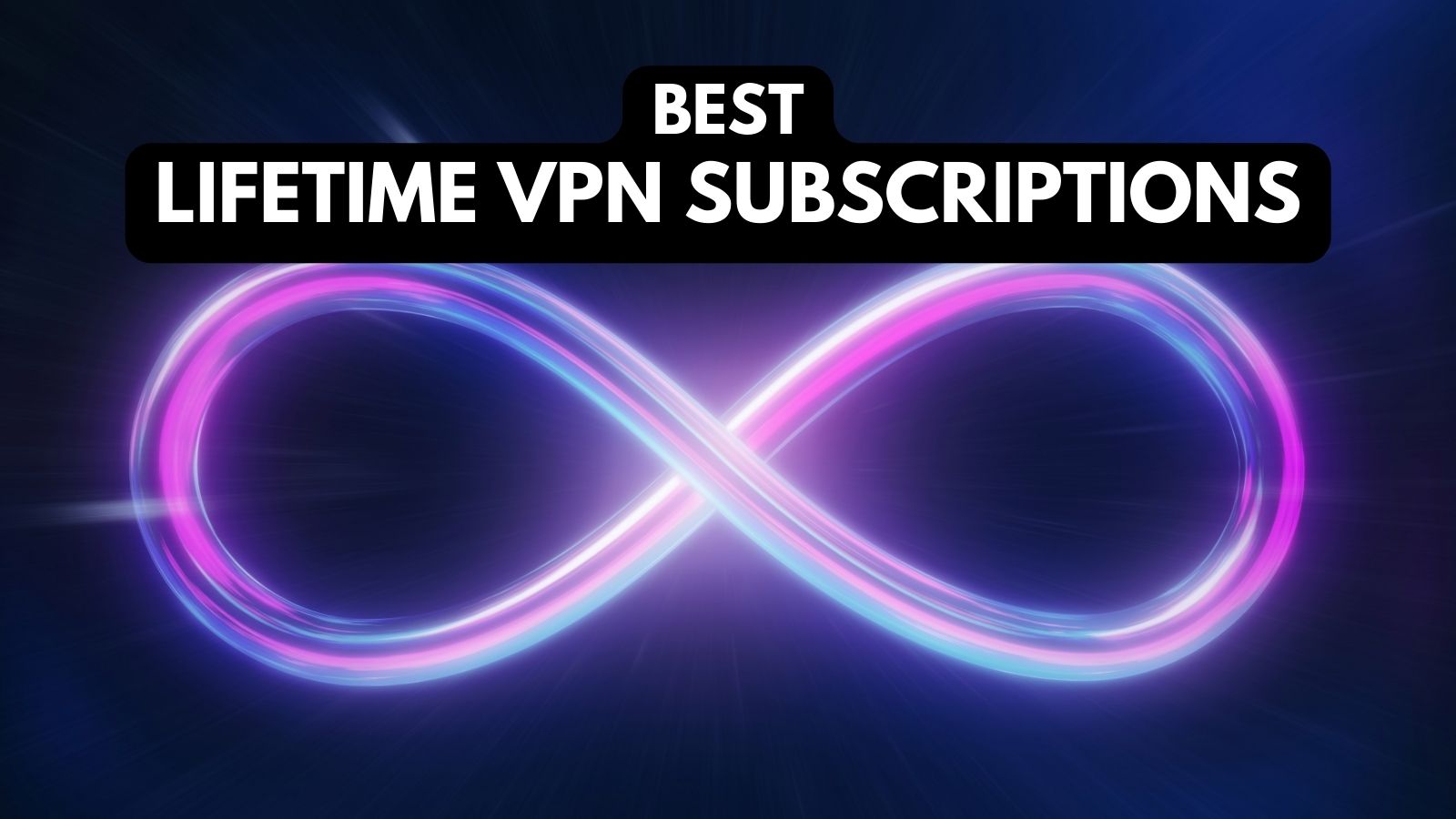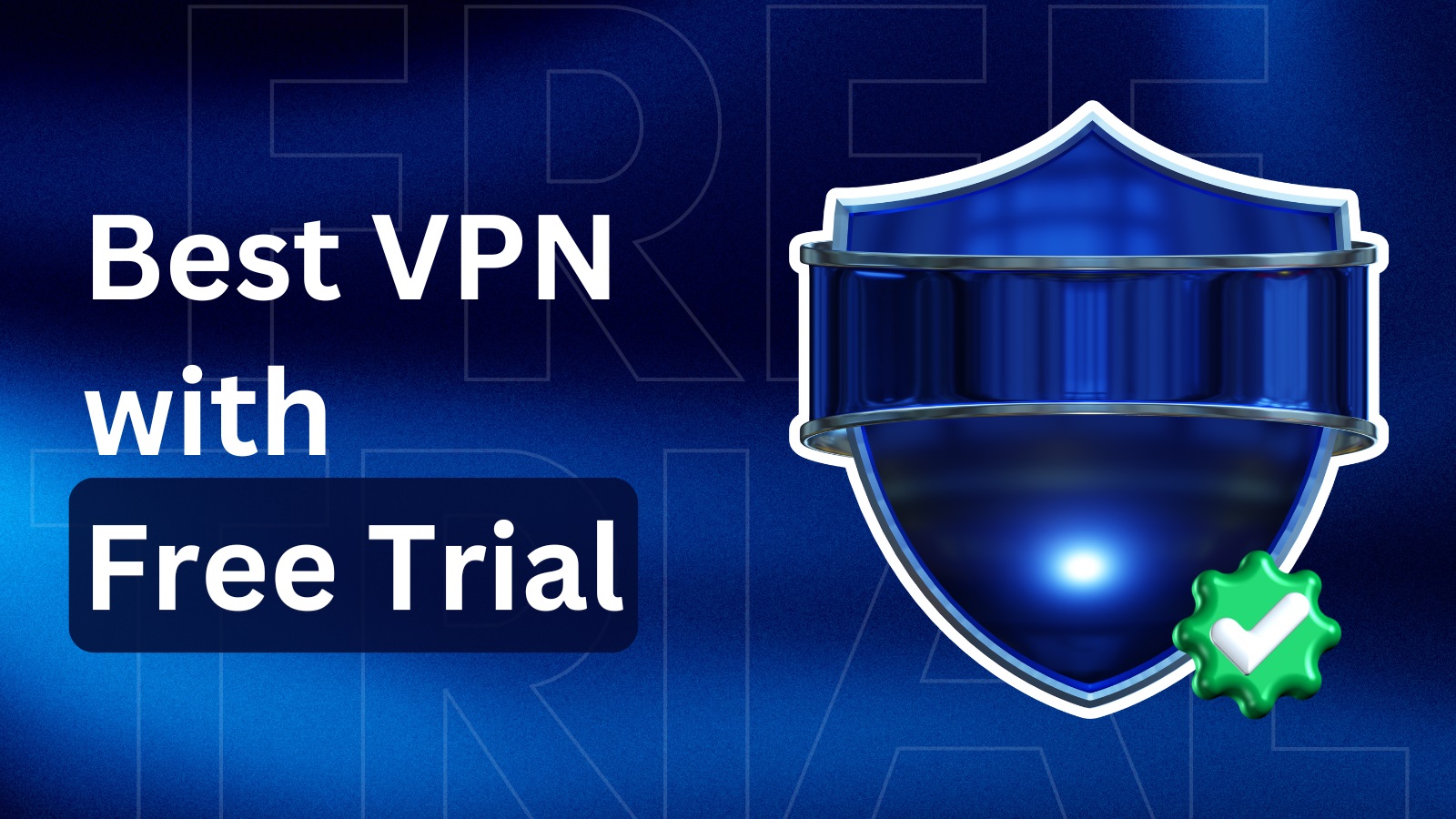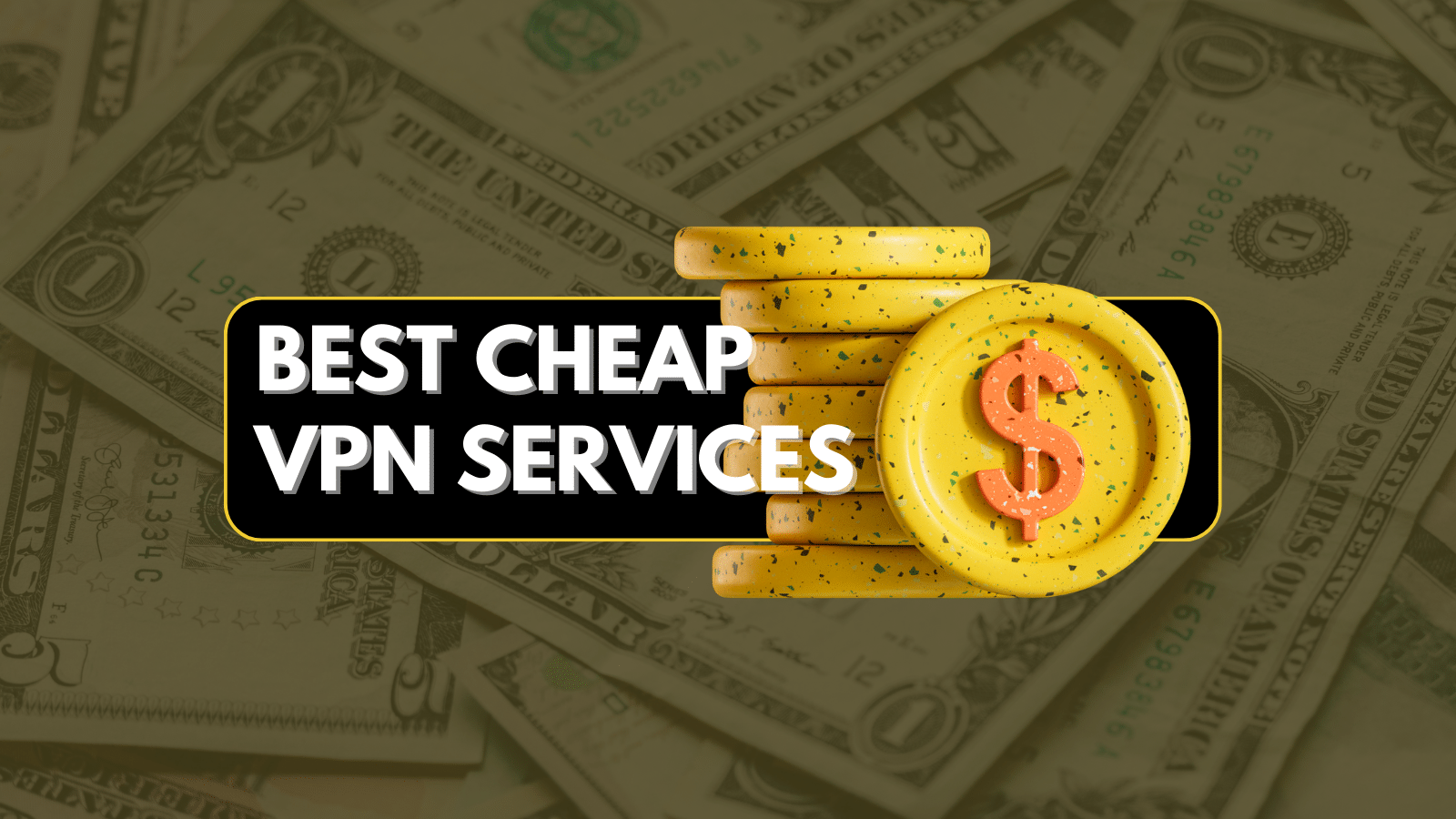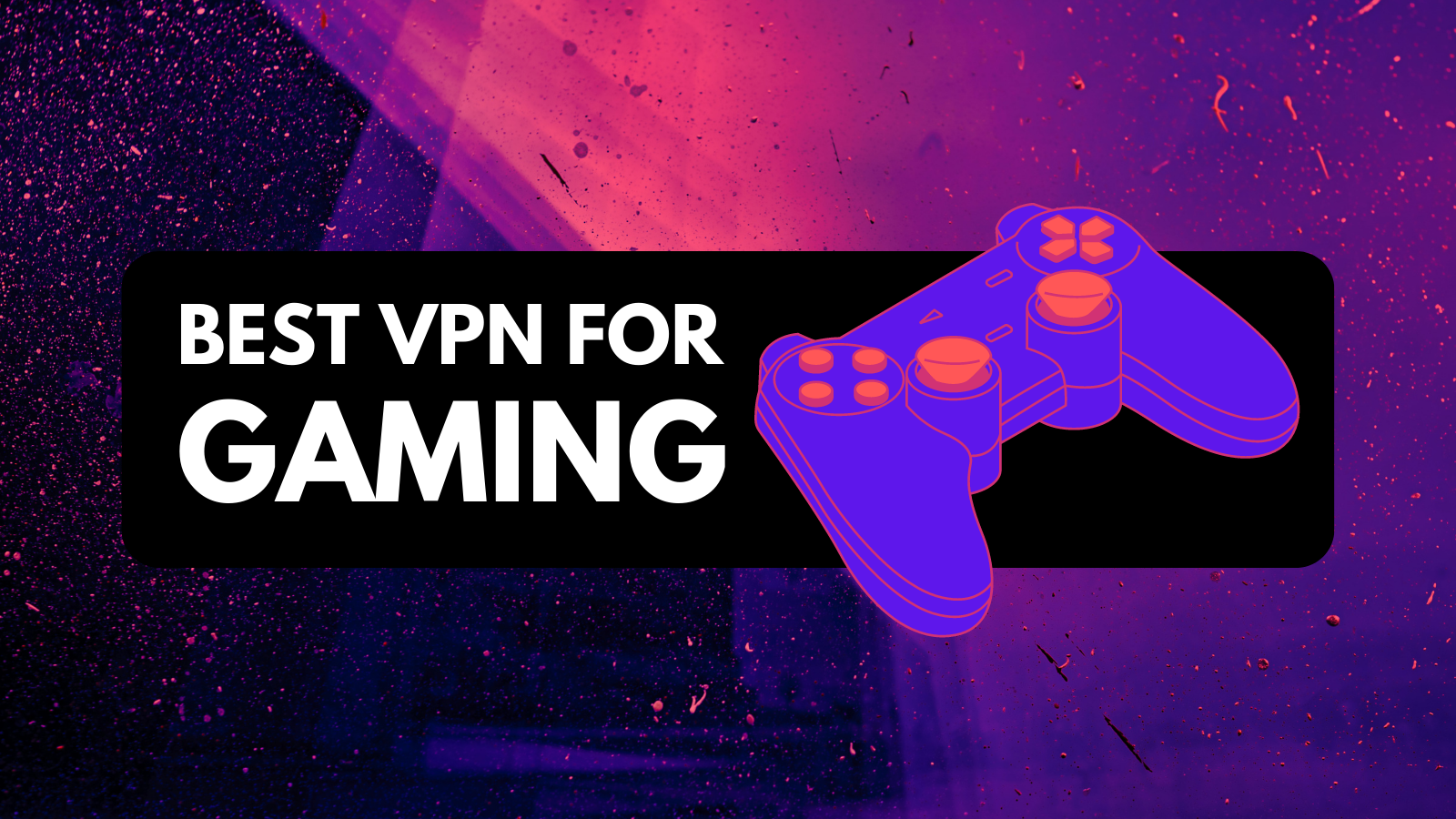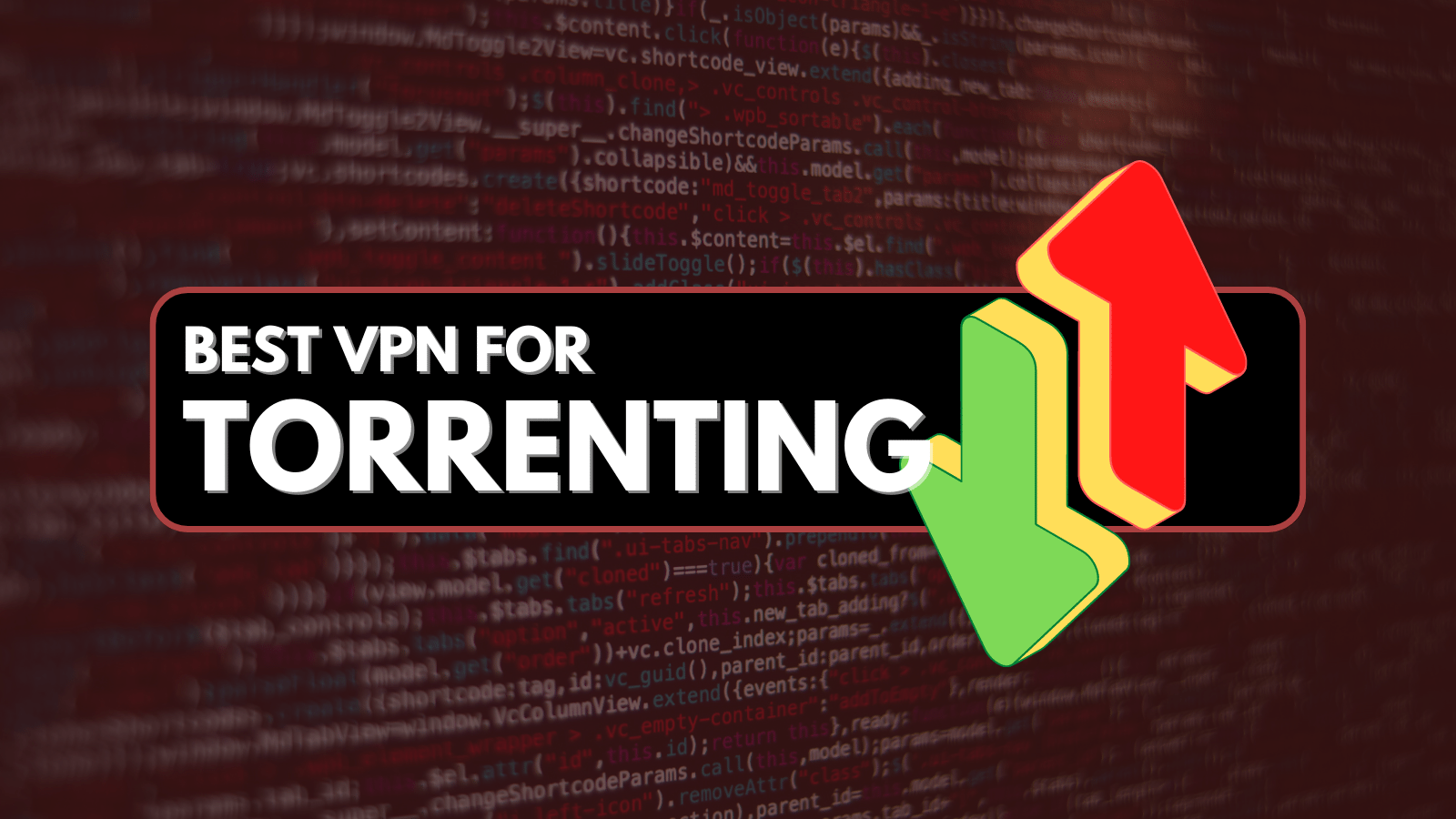When you purchase through links on our site, we may earn an affiliate commission. Here’s how it works.
7 Best VPN for Multiple Devices in 2025
Our experts have reviewed 53 VPN providers, which were put through extensive rounds of testing. To learn more about that process, here’s how we review VPNs, where we explain our criteria and our policy of being fully transparent.
Most VPN services have a limited number of simultaneous connections. That said, no matter if you have a lot of gadgets or want a cost-effective subscription for all your family members, you need a VPN that offers native apps across the board and a generous number of simultaneous connections.
Also, leaving out even a single device exposed creates a significant vulnerability to your digital privacy protection. So, you'll want a VPN that leaves no stone unturned, which means being able to install VPN apps across all your devices.
Based on our recommendations, the minimum number of parallel connections you can count on is 7, which should be enough for most users. However, some VPNs offer as many as 10, and a few VPN providers even offer unlimited connections.
In this guide, we'll show you the best VPNs for multiple devices, discuss their pros and cons, explain why you need a VPN, show how to choose the most suitable one, how to set up a multiple-device VPN, and answer some FAQs in the end.
How to Use a VPN on Multiple Devices
Once you pick a VPN and obtain a subscription, you need to install its native apps across all your Web-connected devices. Here are the steps that you need to take:
- Sign up for a VPN with many simultaneous connections (we recommend NordVPN).
- Download the VPN on your computer, phone, tablet, and other devices you use.
- Launch the VPN and log in using your credentials (do this on each device).
- You can now connect to a VPN server and initialize your session.
- Keep in mind your VPN's limit on simultaneous connections. That's it!
The Best VPNs for Multiple Devices in 2025
To help you find the best VPN that offers multiple simultaneous connections, we'll guide you through the criteria you need to follow. That said, make sure your chosen VPN supports all the platforms and devices you use daily. That also means your VPN should have enough simultaneous connections so that you can use it at home and on the go.
Next, ensure there's a wide server network, with servers distributed evenly across as many countries as possible. You'll also want a no-logs policy (an audited one, preferably), strong VPN protocols (OpenVPN, WireGuard), and robust encryption (AES-256, ChaCha20).
In terms of the features to keep your eye on, those should be a kill switch, split tunneling, and ad-blocking. A multiple-device VPN should also unblock websites, apps, and online services. That means you'll get to use it for privacy protection, streaming, gaming, and more. And don't forget that you need a speedy VPN with minimal throttling.
Finally, ensure there's a money-back guarantee, letting you reserve your right to change your mind after purchase. Related to that, you also want a fair price and plenty of value for your money. There should also be 24/7 live chat customer support, which is how you'll resolve any technical issue in record time.
After reviewing 53 providers across a range of desktop and mobile platforms, these are the 7 VPNs for multiple devices that we recommend:
1. NordVPN - Our #1-Rated Best VPN for Multiple Devices in 2025
NordVPN is an ultra-capable VPN that comes with 10 simultaneous connections. Therefore, it's possible to use NordVPN across numerous devices to protect yourself at home as well as on the go. Also, getting started with NordVPN is quite simple, as it brings native software across the board.
If you have a Windows, macOS, or Linux computer, you'll get to use NordVPN as a native app. Mobile apps are covered as well, including iOS, iPadOS, and Android. If you prefer to stick to your Web browser, NordVPN lets you install its extension on Chrome, Firefox, and Edge.
Of course, there's support for routers as well. And let's not forget that streaming devices are also on offer. That applies to Android TV, Apple TV, and Amazon Fire OS. This truly is the VPN for all devices, as there's practically no device left out.
This Panama-based VPN has 7,400+ servers in 118 countries. It also has a no-logs policy, protocols such as NordLynx, NordWhisper, IKEv2/IPsec, and OpenVPN, as well as AES-256-GCM and ChaCha20 encryption systems. Furthermore, it covers some advanced features like a kill switch, split tunneling, anti-tracking, and ad blocking.
This VPN also works for unblocking sites and unblocks a range of sites and digital services. No matter if you want to bypass censorship or access new streaming sites or games, NordVPN will be there to support you - on any device. Also, it has ultra-fast and stable performance, being one of the fastest VPN services at the moment.
Everything listed above is available at $3.39 per month for 24 months. And, without any surprise, there's a 30-day money-back guarantee - no questions asked. There's also 24/7 live chat support in addition to plenty of tutorials, installation guides, FAQs, and more.
Make sure to learn more about this VPN by reading our NordVPN review.
PROS
- Apps for practically any device.
- Uniform and modern interface.
- One of the fastest VPNs.
- Suitable for practically any use.
- 30-day money-back guarantee.
- 24/7 live chat support.
CONS
- Pricey month-to-month plans.
2. Surfshark - Best Multi-Devices VPN with Tons of Server Locations
When it comes to Surfshark, this VPN offers plenty of things to be excited about. For example, you get unlimited simultaneous connections, which means you can protect all your devices using a single subscription. In theory, you'll even get to share this VPN subscription with your family and friends, which adds a lot of value overall.
This VPN has apps for computers, phones, tablets, streaming devices, and routers. More precisely, there are apps for Windows, macOS, and Linux. It's also available on iOS, iPadOS, and Android. It even offers apps for Android TV, Apple TV, and Amazon Fire OS. When it comes to Web browsers, Surfshark works on Chrome, Firefox, and Edge.
We're talking about highly polished native applications that use WireGuard, IKEv2, and OpenVPN, in addition to ultra-secure encryption (AES-256-GCM and ChaCha20). Of course, this is an audited no-logs VPN based in the Netherlands that features great performance overall.
More advanced VPN users will like that Surfshark has a kill switch and split tunneling. It can also protect you against trackers and block ads, and it even includes an antivirus app. That said, you can think of it as an all-in-one cyber security solution for all your devices.
Also, it has 3,200+ servers in 100 countries. Without any surprise, this VPN works excellent for unblocking websites, especially since it offers advanced obfuscation. That means you'll bypass geo-blocks without websites knowing you use a VPN.
In case of any issues or questions, Surfshark will be there with its 24/7 live chat support, which you can access via its website. To subscribe, you'll need to pay $2.19 per month for 24 months. And to top it all off, this VPN has a no-questions-asked 30-day money-back guarantee.
Interested in learning more? If so, make sure to visit our Surfshark review.
PROS
- Fast and stable performance.
- Plenty of unique features.
- Suitable for first-time VPN users.
- Verified no-logs policy.
- 30-day money-back policy.
- 24/7 live chat support.
CONS
- Takes a few moments to connect.
3. ExpressVPN - Best High-End VPN for Digital Privacy on All Devices
ExpressVPN supports 8 simultaneous connections, which seems quite generous. For example, you can connect from 4 computers, 2 phones, and 2 tablets. If you install it on a router, you can connect all your devices at once while taking a single slot of your subscription (with 7 more to go).
You can install this VPN on practically any device or platform out there. In terms of computers, there's software for Windows, macOS, and Linux. When it comes to your phone, you can run ExpressVPN on iOS, Android, and Fire OS. Here's our guide on how to use ExpressVPN on multiple devices.
If you prefer to use a VPN in your browser, ExpressVPN lets you do that in Chrome, Firefox, and Edge. There are also apps for streaming devices powered by Android TV, Apple TV, and Fire TV. Also, this VPN works on a wide range of routers.
We'll also add that this British Virgin Islands-based VPN has an undisclosed number of servers in 105 countries. It's also one of the safest VPNs, as it comes with an audited no-logs policy. It's powered by OpenVPN, Lightway, and IKEv2 protocols paired with AES-256 and ChaCha20/Poly1305
More advanced users are going to love that a kill switch is included, as well as split tunneling. There's even a password manager, as well as ad blocking. In terms of performance, ExpressVPN is among the fastest options right now - based on our hands-on tests.
Let's not forget that ExpressVPN has obfuscated servers, which is why it unblocks any site. This is especially true for streaming platforms, of which this VPN can unblock 40+ different services. That means privacy protection is just one of the many possible uses of this VPN.
To show you that it has nothing to hide, ExpressVPN comes with a 30-day money-back guarantee. Also, it's available at $4.99 per month for 24 months. And in case of any technical issues or questions, you can always turn to this VPN's 24/7 live chat support, available on its website.
Our ExpressVPN review will show you what else to expect from this provider.
PROS
- Works on any device/platform.
- Powered by high-end technologies.
- Great for practically any use.
- Incredibly easy to install and use.
- 30-day money-back guarantees.
- 24/7 live chat support.
CONS
- On the pricier side.
4. CyberGhost VPN - Tons of Simultaneous Connections for Family Entertainment
It doesn't matter what kind of VPN you're after - we're confident CyberGhost will meet your needs. This is another long-standing VPN service available on pretty much any device, bringing an undisclosed number of servers in 100 countries.
CyberGhost VPN does it all - including media streaming and downloading torrent files. It comes with a series of highly polished applications for Windows, macOS, Linux, iOS, Android, Android TV, and Fire OS, and you can install it on a router as well. A single subscription supports up to 7 simultaneous connections, so this truly is a VPN for all devices.
This is also a no-logs VPN provider from Romania, which has been recently audited. In terms of privacy protection, you get OpenVPN, IKEv2, and WireGuard, paired with AES-256-GCM and ChaCha20. So, you can be sure you'll get a highly secure VPN data tunnel without data leaks.
More advanced features are there as well, such as split tunneling as well as a kill switch, which comes fully automated and present in the background. Ad-blocking is on offer as well, and you'll find specialized servers for browsing, streaming, and gaming - a rare thing to see.
Thanks to CyberGhost's specialized servers, you'll unblock 50+ digital services, including streaming platforms, censored websites, and gaming marketplaces. And you'll do that with minimal throttling. However, we'll note that highly remote servers can be on the slow side.
Another great thing about this VPN is that it offers a 45-day money-back guarantee applicable to long-term plans. Speaking of which, you can pay only $2.19 per month for 24 months. There's also 24/7 live chat support, coupled with in-depth written resources such as installation guides, explainers, and more.
If you want to see this VPN in action, don't forget to read our CyberGhost review.
PROS
- Wide range of native software.
- Extra-wide server network.
- Great for media streaming.
- Specialized servers on offer.
- 45-day money-back policy.
- 24/7 live chat support.
CONS
- Remote connections can be slow.
- Doesn't offer obfuscation.
5. Private Internet Access - Unlimited Connections & Servers Across the US
Private Internet Access is a highly capable US-based VPN with unlimited simultaneous connections. Also, it has strong support for all currently popular devices and platforms, and we're talking about native software here.
You can download and install PIA's native app on Windows, macOS, and Linux. Then, there are apps for iOS, iPadOS, and Android. Regarding Web browsers, PIA offers fully featured extensions for Chrome, Firefox, Edge, and Opera. It even works on Android TV, Apple TV, and Fire TV.
Also, its features are available across practically all its apps, which isn't the case with every VPN. That means you get an undisclosed number of servers in 91 countries, multiple VPN connection protocols (WireGuard, OpenVPN, and IPsec (IKEv2)), the ability to fine-tune protocols, AES-128-GCM, AES-256-GCM, AES-128-CBC, AES-256-CBC, and ChaCha20 encryption, a kill switch, split tunneling, and an ad-blocker.
Keep in mind that PIA is a great pick for more advanced users who are not afraid to dive deeper into their VPN connection. So, it's no surprise that PIA works on routers as well. You'll find comprehensive guides on setting up PIA on routers, so you should go through that process without issues, even if you don't have extensive technical knowledge.
This no-logs and open-source VPN plays well with website unblocking as well. It's not the most powerful option for unblocking streaming sites and similar digital platforms, but it's surely among the top options in that regard. It's also very fast, but be prepared to optimize it a bit.
In the end, know that PIA offers a 30-day money-back guarantee. You can get started with this VPN for only $2.19 per month for 24 months. There's also 24/7 live chat support, which means you'll get to resolve any technical issue in no time.
Need more information? Visit our Private Internet Access review.
PROS
- Best for more advanced users.
- Unlimited simultaneous devices.
- Native software across the board.
- High-end privacy protection.
- 30-day money-back guarantee.
- 24/7 live chat support.
CONS
- Medium-fast connection speeds.
- Can be overwhelming for beginners.
6. Proton VPN - Beginner-Friendly VPN with Apps for All Your Devices
Proton VPN is an excellent pick if you want a capable VPN that does it all for you. But, first and foremost, know that Proton VPN supports computers, smartphones, and Web browsers. It also supports up to 10 simultaneous connections.
On computers, Proton VPN is available as a native app for Windows, macOS, Linux, and Chrome OS. When it comes to mobile devices, it works on iOS, iPadOS, and Android. If you need a VPN for a streaming device, this one works on Android TV and Amazon Fire OS.
All those apps are open-source, which means they're available for inspection by just about anyone. Of course, Proton VPN works on routers as well. In that sense, ProtonVPN supports WireGuard, OpenVPN, IKEv2, and Stealth, so you'll get robust protocols.
This Switzerland-based VPN has 9,600+ servers in 117 countries. It's also a no-logs VPN with a kill switch, split tunneling, ad-blocking, and other features that keep digital trackers at bay. Proton VPN also uses an advanced firewall, so you can bypass any geo-block, allowing you to route your traffic through single or multiple servers.
We'll also add that Proton VPN's speed has never been faster. In the past, its remote connections used to be somewhat slow. However, now they're powered by 'VPN Accelerator,' a feature that transports your data through multiple channels at once.
Proton VPN also has a 30-day money-back guarantee. Also, it's priced at $3.59 per month for 24 months. That said, what it doesn't have is 24/7 live chat support. Instead, you can contact its support team via email, support tickets, or consult its self-help material.
Before you make up your mind, don't forget to check our in-depth Proton VPN review.
PROS
- Open-source apps for all devices.
- Very easy-to-use apps.
- One of the best VPNs for privacy.
- Audited no-logs policy.
- 30-day money-back policy.
CONS
- No live support via its website.
- Heavy use of VPN terminology.
7. IPVanish - Simple Yet Robust VPN with Unlimited Connections
IPVanish is one of the oldest VPNs around - as well as one of the most recognizable names in the VPN industry. You'll find its apps available on computers, phones, streaming devices, and routers (which means there are no browser extensions at the moment). Also, it has unlimited simultaneous connections.
IPVanish brings apps for Windows, macOS, and Linux. Then, it brings iOS, iPadOS, and Android apps through Apple's App Store and Google's Play Store. It also works on media streaming devices powered by Android TV and Amazon Fire OS.
With this US-based VPN, you can choose from a range of protocols (OpenVPN, IKEv2, IPSec, and WireGuard) suitable for different needs and priorities. The application ensures that all your data uses AES-256-CBC with a SHA256 hash algorithm and ChaCha20 encryption ciphers, no matter which platform you use.
You'll gain access to 2,400+ servers in 100+ countries, as well as a no-logs policy, kill switch, and even split tunneling. However, unlike most of our other recommendations, IPVanish doesn't really have any unique or highly advanced features. It's a rather basic VPN overall, designed to work in the background without much input on your part.
You can use IPVanish to unblock the most popular streaming services. Its website unblocking skills aren't exactly legendary, but IPVanish should meet the needs of most users. It's also not the fastest option around, making it suitable for those with faster Web connections.
IPVanish has a 30-day money-back guarantee without any fine print or similar obstacles. It kicks in once you pay for this VPN, and you can get started for only $2.19 per month for 24 months. It also has live chat, but it's not available 24/7 - as it seems at the moment.
Your next Web destination should be our IPVanish review - if you want to know more.
PROS
- One of the easiest-to-use VPNs.
- Servers in 90+ locations.
- Available as a native app.
- Unlimited simultaneous connections.
- 30-day money-back guarantee.
- Live chat available (not 24/7).
CONS
- No Web browser extensions.
- Slower than its competitors.
Comparing the Best Multi-Device VPNs
How Did We Rank the Best VPNs for Multiple Devices?
Our goal was to recommend the most capable and highly functional VPNs that work across a range of different devices. Our team focused on testing top-rated VPNs only, checking their applications for computers (Windows, macOS, Linux), mobile devices (Android, iOS, iPadOS), streaming devices (Android TV, Apple TV, Amazon Fire OS), and routers.
Plus, we paid attention to each VPN's support for simultaneous connections. As a result, the VPNs found above come with polished software across the board, allowing you to use them on any device. That said, we also checked each VPN's protocols, encryption, customer support, overall value, and performance by connecting to nearby and remote servers.
Why Do I Need a VPN with Simultaneous Connections?
Your goal is to protect every gadget connected to the Internet so that your personal info and your real IP won’t leak online. Using a VPN on only one device means all your other devices aren’t protected, which leaves you open to all kinds of vulnerabilities. Here's some additional info:
- Protect All Your Devices - Most people already own at least two devices connected to the Web all the time - phones, laptops, tablets, or PCs. If you only use a VPN on half of your devices, you’re only half protected against cyber-attacks. Also, having a single subscription for all your family members is a cost-effective option to protect your entire household.
- Hide Your Browsing Activity - Don't want your Internet provider to know what you do online? Don't want Internet trackers to follow your every step? A VPN is the solution!
- Hide Your IP Address - Did you know that your IP address reveals your physical location? A VPN helps you hide your IP and obtain a new one, even from a different country.
- Bypass Bandwidth Throttling - If your Internet provider slows down your connection when streaming or gaming, you can prevent that by routing your traffic through a VPN.
- Avoid Local Censorship - Live in a country that censors specific types of websites? Or maybe you want to access a website available in a foreign country? All you have to do is fire up your VPN, connect to a server outside your location, and you're good to go.
- Access Global Content - Digital services like streaming platforms are typically geo-blocked, or they bring country-based content libraries. A VPN helps you reach more content online by hiding your actual location.
- Connect to Public Wi-Fi - As soon as you start a VPN session, all your traffic flows through an encrypted tunnel. That means you'll secure your data even on highly vulnerable networks, like public Wi-Fi networks.
- Get a Better Gaming Experience - A VPN can lower your ping and minimize latency, which means you'll end up with more responsive gaming sessions. You'll also unblock new games and new cosmetics and even buy games at a reduced price.
- Shop Safely Online - Online shopping sites use all kinds of protections to secure your digital transactions. However, don't trust any website to handle your data with care. Take the matter into your hands and protect yourself with a VPN.
- Avoid Price Discrimination - Shopping sites often have different prices for different countries and regions. They also use trackers to determine the price of an item. However, they won't be able to profile you if your data is encrypted through a VPN.
- Secure Torrent Downloads - Many countries are firmly against torrenting, as it's often associated with piracy. A VPN will help you hide your traffic. That means your IP will become invisible and unknown to your ISP to any third party.
- Browse Your Local Sites While Traveling - If you discover that a website is unavailable outside of your home region, you can use a VPN while traveling to gain access to that website, like you're back at home.
What Devices Support VPN Apps?
Today's VPN apps work practically across any imaginable Web-connected device. That means you can install a VPN app on your computer, phone, tablet, streaming device, and more. Some types of devices don't support VPNs natively, but there's always a workaround to protect your traffic from those devices using a VPN.
In the table below, you'll find our guide to the best VPN providers for specific devices and brands, recommended following rigorous testing by our team. Take a look.
How to Choose the Best VPN for Multiple Devices?
Firstly, you should look for VPNs that allow as many simultaneous connections as possible. Then, make sure your VPN has high-end security to prevent IP leaks and cyberattacks. Thirdly, look for VPNs with excellent customer support. Here's some extra information:
- Native Apps for All Your Devices - Go for bug-free, intuitive VPN apps for Linux, Windows, iOS, macOS, and Android. In other words, your chosen VPN must offer native apps for all your devices. Or pick a multiple-device VPN that works on routers.
- Plenty of Simultaneous Connections - The best VPNs on the market allow around 5-10 simultaneous connections. If the VPN has less than that, it’s not a good deal. Also, some VPNs offer unlimited simultaneous connections, which is great for multiple users.
- Servers Across the Entire World - The larger the server network, the easier it is for you to find nearby servers. This way, you can have fast speeds when gaming, torrenting, or streaming.
- Strong Data Privacy and Security Features - Your chosen VPN should have 256-bit encryption, leak protection, and a kill switch. This way, your IP will never get exposed, no matter which devices you use.
- No-Logs Policy (Audited) - A good VPN for all devices shouldn’t log your browsing and sensitive data. So, make sure it has a strict no-logs policy (bonus points if it has been independently audited).
- Website-Unblocking Abilities - You'll want a VPN that can unblock any website, media streaming platform, or digital service. Ensure you get a VPN that has the means to bypass geo-blocks and evade censorship.
- Advanced and Extra VPN Features - If you're a more advanced VPN user, go for a VPN that has a kill switch and split tunneling. Also, pay attention to whether any extras are included, such as ad-blockers, antivirus apps, or similar.
- Smooth and Steady Performance - A VPN should not leave you with a slow connection. Instead, the best VPN should introduce a minimal, barely noticeable slowdown.
- Wallet-Friendly Price - Everything mentioned in this segment should come at an affordable price. Keep in mind that you can reduce the cost of a VPN by opting for a long-term plan.
- Reliable Money-Back Policy - Buying a VPN doesn't have to be a risky investment. Any trustworthy VPN will come with money-back guarantees, giving you plenty of time to test-drive its features. On average, you can expect to have up to 30 days to change your mind.
- Helpful Customer Support - On its site, your chosen VPN should have up-to-date guides for all platforms, including routers. The best ones provide step-by-step tutorials to make the installation process easier.
How to Setup a VPN on Multiple Devices?
There are two ways to set up a VPN on multiple devices. The easiest option is to install a VPN on each of your devices. However, there's also a way to protect all your devices at once.
Option #1: Install Individual VPN Apps
The easiest option is to install your chosen VPN on every device you own. That way, you can open your multiple-device VPN app and connect on demand. Just keep in mind that every VPN supports a limited number of simultaneous devices, so you need to stay below that limit.
Getting started with VPNs is quite simple, unless you decide to set up your own VPN server at home, as they're very easy to install. Check the following table to learn how to set up a VPN on your computer, phone, streaming device, and more.
Option #2: Set Up a VPN on Your Router
If you need to go beyond your VPN's limit on simultaneous devices, you should install it on your router. That way, you'll take only a single slot of your subscription, no matter how many devices you connect to your home router.
That means you can also set up your VPN on your mobile devices. So, you'll cover all your devices at home as well as on the go - all within your VPN's limits.
To learn more, we recommend checking our guide on how to set up a VPN on a router (or, more precisely, here are our guides for D-Link, Asus, and Netgear routers). Also, if you don't have a compatible model, take a look at our guide to the best VPN routers.
Final Thoughts
Going for a VPN that supports plenty of devices and offers many simultaneous connections is a cost-effective way to protect your entire household. However, don't forget about the basics. Since you plan to cover as many devices as possible, your chosen VPN must also offer fast speeds, reliable privacy, the ability to unblock sites, and more - based on your needs and priorities.
All of the VPNs recommended above deliver stellar support for any currently popular platform. That said, we recommend you prioritize NordVPN, which features brilliant apps overall. Plus, it's the best VPN for multiple devices with the added benefit of high-end features and a sizable server network, and it's great for practically any use.
When it comes to other top-rated VPNs, we can recommend Surfshark to first-time VPN users who need unlimited connections, while ExpressVPN, PIA VPN, and Proton VPN focus on privacy by offering no-logs policies and robust protocols. Then, we also have CyberGhost with specialized servers for streaming and downloading, while IPVanish is a great all-in-one VPN for those who need a cost-effective solution.
This is where we conclude our guide. If you have any questions for us, make sure to post your comment below. Thanks for reading!

